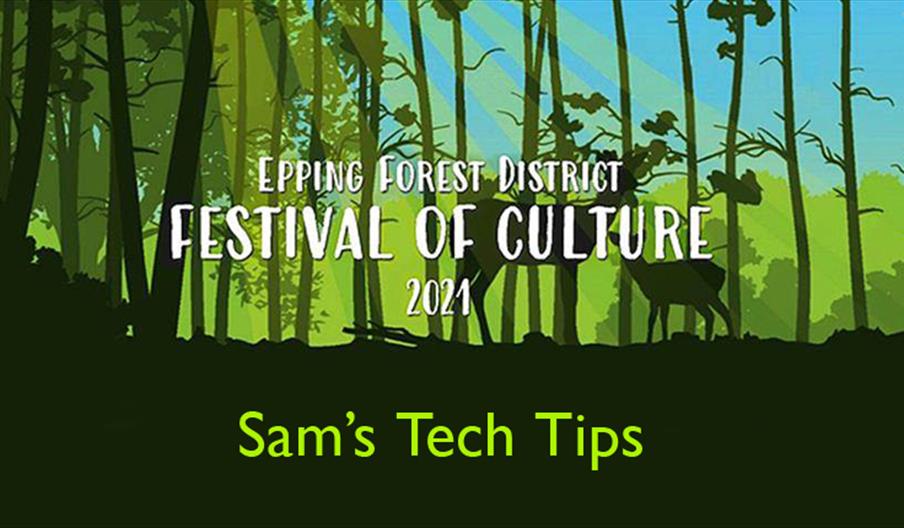
Book Tickets Online
About
Tech Tips for hosting your own digital events: What we’ve learnt from the Festival of Culture so far:-
COVID-19 restrictions have forced us all to embrace internet technology at a faster rate than ever. The Epping Forest District Festival of Culture was no exception. All our in-house events which would normally take place in person had to be rapidly shifted online in the wake of the most recent wave of restrictions, from ‘Funky Fruit Workshops’ to our ‘Wildlife Talks’ series.
It has been a steep learning curve for us all here, so we have put together five Tech Tips to share what we think are the biggest lessons learnt along the way:
1. Have back-up
Anything can go wrong when you are hosting an online event: power or the internet might fail you, computers might freeze at just the wrong moment, buttons which you knew how to find previously might mysteriously have disappeared, something might come up at home, and sometimes just too many things happen at once … Having someone else poised to take control, or smooth things over if something happens, can make all the difference in these tight spots.
2. Practice
While we are all more familiar than ever with speaking to each other online, every system has its own quirks. It’s always worth getting together with all the people involved in hosting the event to run everything through. Make sure everyone knows how everything works, that you can all hear and see each other clearly, that any presenters know how to share what they want to share, and that anything embarrassing is hidden from the background (or that appropriate virtual backgrounds are chosen). Making sure everyone is well prepared and knows what the plan of action is helps everything tick over smoothly.
3. Make sure your guests know how to join
Sending clear instructions for joining to guests is just as important as sending them to your hosts. As well as the time and date, make sure they have a link to follow, and any password they may require. We found that it was difficult to send the talk details to guests one at a time as bookings trickled in, so it worked out better to send them to everyone who had booked in one go 24 hours before the event.
4. Prepare for Q&A
Questions are such an important part of any talk, but they have to be run slightly differently online. We found it was best to ask guests to type their comments into the chat bar as they thought of them, then we would run through them all together at the end. We found this meant the speaker’s flow wasn’t interrupted, and that people didn’t have to worry about remembering their questions all the way until the end.
5. Evaluate
Sometimes it is hard to know what went well and what didn’t from behind the scenes. Asking your audience what they thought about your event is the best way of learning from the experience and making sure your events continually improve. This is such a new experience for so many people that it’s more even more important than usual to make sure it’s working as well as it can
Running events online has had its challenges, but by letting people attend and host from their own homes we have been able to attract audiences and speakers who would never have been able to participate in in-person events. Going online might not be the answer to all our problems, but it will certainly be playing a significant part in our programming in the future, even after COVID-19 restrictions have been lifted.
Sam Price, Cultural Development Officer







